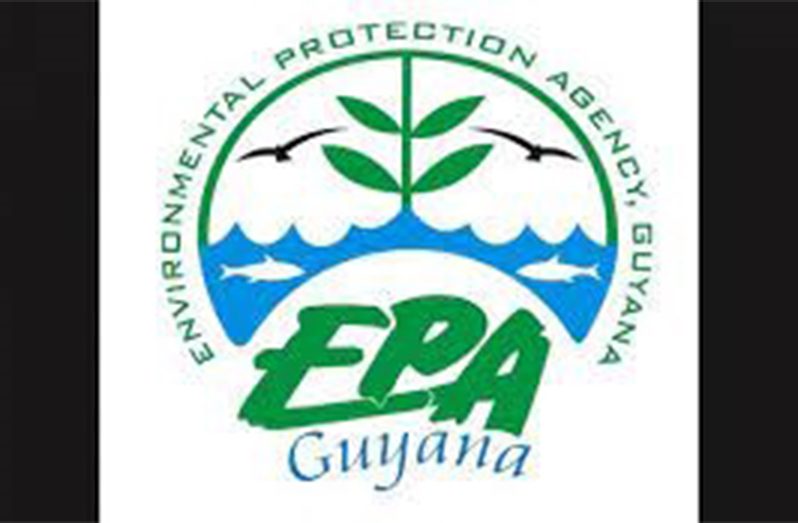THE Environmental Protection Agency (EPA) has moved to the Court of Appeal to overturn Justice Sandil Kissoon’s decision that the agency and oil giant ExxonMobil breached obligations relating to its oil-spill insurance policy.
Justice Kissoon, last week, found that the oil giant “engaged in a disingenuous attempt” to dilute its obligations under its environmental permit for its Liza One project, by not fully meeting insurance requirements relating to environmental protections.
The EPA’s attorney, Sanjeev Datadin, has moved to the appellant court seeking a stay of the ruling, among other things.
In the application, the EPA was arguing that Justice Singh made an error in interpreting and applying two legal provisions related to an environmental permit issued to a company called Esso Exploration and Production Guyana Ltd.
The first provision is Clause 14 of the Environmental Permit, which is a condition that the company must comply with in order to operate in Guyana.
The second provision is section 31(2) of the Environmental Protection Act, which sets out requirements for financial assurances that companies must provide in relation to environmental permits.
The appellant is contending that the trial court misinterpreted these provisions and wrongly concluded that the financial assurance required of Esso Exploration and Production Guyana Ltd. was unlimited.
“The Trial court erred in law in directing and determining the exact manner of the exercise of the discretion of the Appellant in a manner contrary to established law and practice. In effect the Trial Court substituted its own discretion as the decision of the Appellant when the Appellant, at all material times, had exercised its discretion and acted well within its statutory and regulatory powers,” the court document read.
Meanwhile, EPA’s Executive Director, Kemraj Parsram, in his affidavit, said that the ruling will stymie progress in Guyana’s burgeoning oil and gas sector.
“It is a notorious public fact that Guyana is now the fastest growing economy in the world. Similarly, it is acknowledged that Guyana’s unprecedented economic growth is in large part due to the exploitation of our petroleum reserves. The permit which is at the centre of this dispute and which the Court below has made orders in relation thereto is critical to the economic activity in Guyana.
“Guyana as a nation now earns billions of dollars annually from the petroleum activities conducted on the Liza 1 and Liza 2 fields; both which are subject to the permit. The suspension or cancellation will have a catastrophic effect on national funds for development and also the private sector which supports the activities on the said Liza 1 and 2 fields,” Parsram said.
Meanwhile, the EPA in a statement on Thursday, set the record straight on “speculation” it observed in the public domain surrounding the ruling.
“We wish to emphasise that we take our mandate and responsibility seriously and have at all times discharged our statutory functions without fear or favour. We at all times make decisions informed by available information, research and in accordance with the Environmental Protection Act Cap 20:05 (EP Act), and our approach to compliance and enforcement is in keeping with international standards,” the EPA said.
The agency said it reviewed the insurance policy provided to it since 2019 against typical insurance coverage across several jurisdictions, and it was found that the coverage related to oil spill liabilities of 600 million was equivalent, and in some cases exceeded the typical coverage offered in some jurisdictions.
According to the EPA, it had to be “diligent” and ensured that it negotiated an affiliate company guarantee that fulfilled the requirement of section 31 (2) of the EP Act which states that a requirement for financial assurance shall specify the amount.
Further, the EPA said that it wanted to ensure that any amount agreed upon, was not arbitrary, and could be renegotiated based on increased risks and any circumstances that resulted in the amounts specified being exceeded.
To achieve this, the EPA said it had consulted practice in several jurisdictions, institutions, and regulators such as OGUK, NOPSEMA and oil spill liability regimes in the US, UK, China, Brazil, etc…, and found that despite the fact that there was full liability for oil spill on the part of operators, no jurisdiction had unlimited/uncapped financial assurance. Even the US under its Oil Pollution Act (OPA) had capped financial assurance requirements.
Guidance received from OGUK and NOPSEMA Australia found that operators in those jurisdictions were required to provide an estimate of the reasonably credible cost of responding and cleaning up a worst-case spill, and this estimate was used to set amounts of financial assurance, including a declaration of financial capability/rating.
The EPA therefore instructed EEPGL to provide this estimate and declaration so that can be used to inform the terms and conditions and amount of financial assurance in the guarantee.
At the time of the hearing of substantive matter, the EPA said it had received the estimate to the tune of $1.5 billion to $2 billion and had several engagements discussing results and using the same to inform its final negotiations on the agreement.
Negotiations concluded on April 27, 2023 on the amount guaranteed, the terms and conditions for renegotiations based on increased risks, and next steps if unfulfilled obligations exceeded the $2 billion guaranteed amounts.
The EPA maintains that at all material times it acted in accordance with the law and executed its statutory functions diligently and to the best of its abilities.













